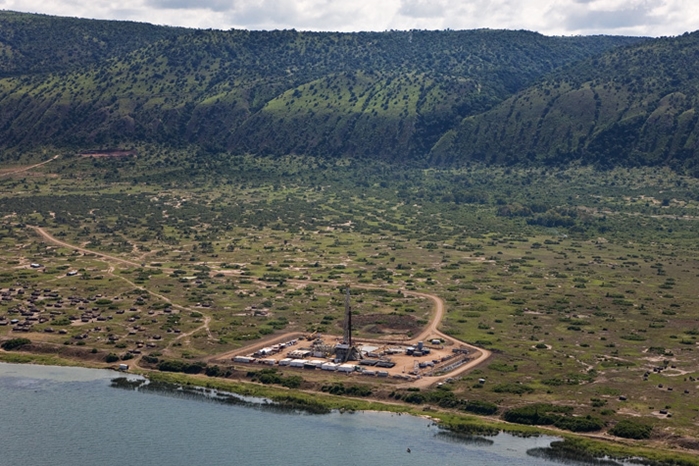
A group of NGOs has filed in a French court to compel Total to disclose details of its human rights and environmental plans in Uganda.
Friends of the Earth France Survie, AFIEGO, CRED, NAPE/Friends of the Earth Uganda and NAVODA are seeking a court order, under France’s Duty of Vigilance law, to compel Total to meet its human rights obligations, a statement said. The case focuses on a proposed development in Lake Albert, in Uganda’s west. Work on the project has slowed to a halt in the face of a stand off between the companies involved and the Ugandan government.
A hearing will be held in the Nanterre High Court on January 8, 2020.
Total will drill more than 400 wells and produce around 200,000 barrels per day of crude, Friends of the Earth noted. Oil will be transported via the East African Crude Oil Pipeline (EACOP), a 1,445 km heated link to the Tanzanian port of Tanga.
The group of NGOs allege Total is not in compliance with its legal obligations under the 2017 law. A judge could decide to force Total to review its plans, “acknowledging the true impact of its oil activities on local communities and the environment”, the statement said. Financial penalties could be imposed by the court in order to achieve this end. The judge could also demand Total takes measures to prevent human rights violations and environmental damage.
The NGOs first filed against Total in June, with the French company rejecting the accusations. Total’s refusal allowed the NGOs to push ahead with seeking a judicial ruling.
There is an impact on the people and the region’s biodiversity, Survie activist Thomas Bart said. “Putting a giant pipeline through these ecosystems will endanger them in the immediate future. It’s urgent that we put a stop to this. If we consider all the risks linked to the pipeline, we’re talking about tens of thousands of affected people.
This represents the first time a case has been filed under the duty of vigilance law. This case is “a legitimate sign of recognition that transnational corporations have new and very concrete legal obligations under this law”, said Friends of the Earth France’s senior campaigner Juliette Renaud. Findings from this case could set a precedent for a number of other cases, Renaud continued. “We will therefore defend the letter and the spirit of the law, which is a major step forward in fighting corporate impunity.”
Total did not respond to requests for comment but in late September said its vigilance plans were complete and that it had carried out environmental social impact assessments (ESIAs) on the Tilenga and EACOP projects. These were carried out to the high standard required by the International Finance Corp. (IFC).
EACOP hearings have taken place today in the Mubende district, backed by the Petroleum Authority of Uganda (PAU). At these, assurances were given about the payment of compensation for relocations.
The passing of the French law required the country’s largest companies to establish vigilance plans. It attempts to enshrine concepts of corporate social responsibility (CSR) into a formalised legal framework.
Other duty of vigilance cases are also under way. For instance, two NGOs are pursuing Teleperformance over its call centres in various places around the world.
